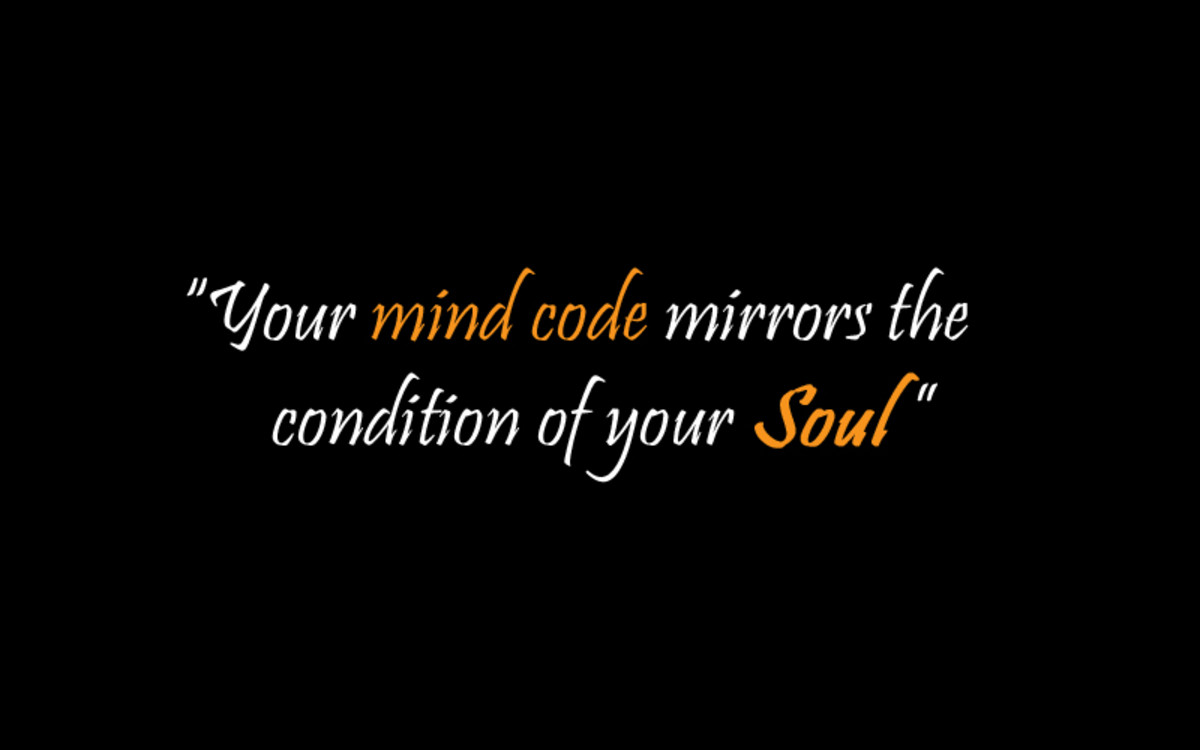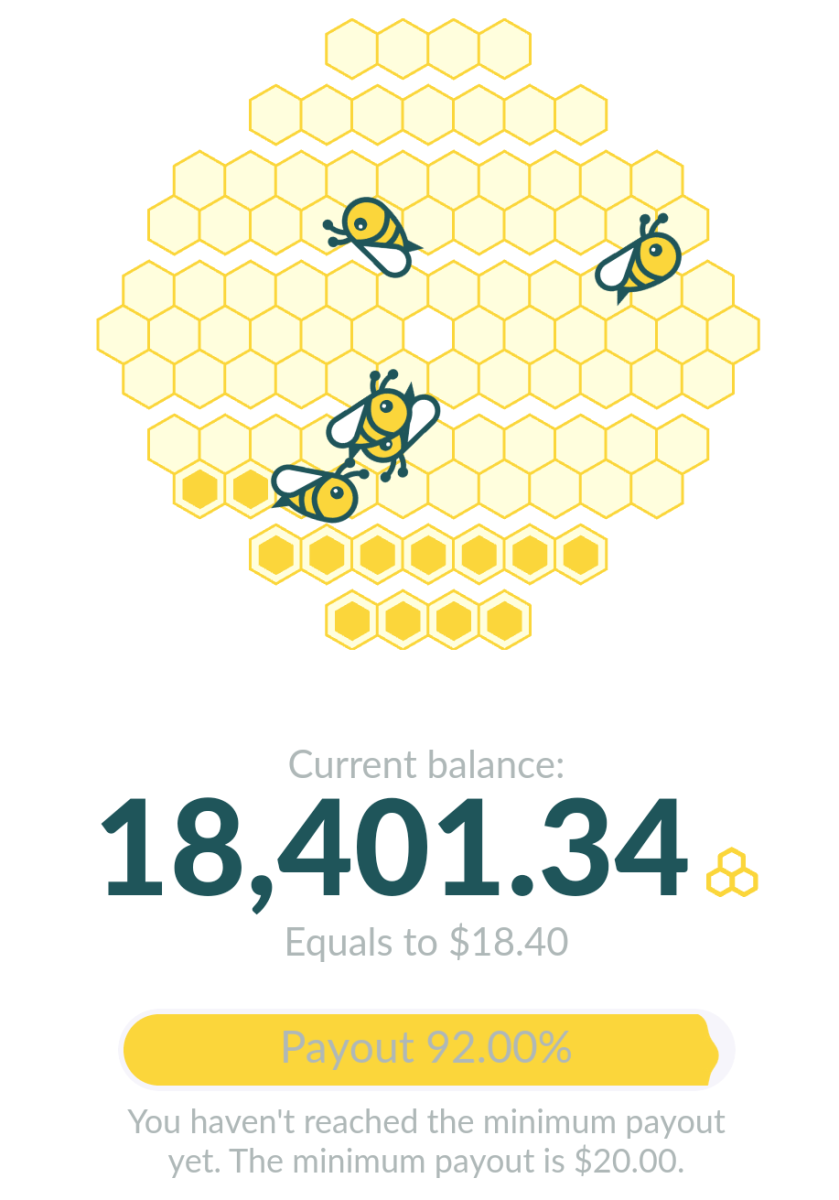LEMMYC'S MONEY MAKING SERIES 101: MASTER YOUR MONEY BLUEPRINT OR YOU WON'T BE RICH
Your money blueprint could be the lid to your financial success
“It all boils down to this, if your subconscious ‘financial blueprint’ is not set for success (towards the accomplishment of your financial goal) nothing you learn, nothing you do can make much of a difference.”
- T. Harve Eker
You have a success and money blueprint
Money blueprint is a pattern or design for a thing – a house. In fact it is a plan for action or purpose to carry out a desire. Your money blueprint is simply your present program or way of being in relation to money. It’s a combination of your thought, feelings and action in the area of money. Do you know what it is or what it looks like? It is possible to elicit your money blueprint by the way of your experiences around money. What is your experience around money like? Money is a result, wealth is a result, health is a result, illness is a result, your weight is a result. What you experience around money stem from your belief around money? Love it or lout it; this is the simple truth. We live in a world of cause and effect.
Your success depends on your personal money blueprint
Your living condition has been equated to your blueprint
LC = Blueprint
The above statement was attributed to Anthony Robbins. Your experience and position reflects your belief.
· What you focus on
· The meaning you make from it
· The action you take as a result
The above determine one way or the other on the decisions you take in a given situation and therefore your decision and not your circumstance determines your destiny. We’ll elaborate more on this issue of decision later on in this discussion.
What is it that creates pain or pleasure for us? This is the key to unlocking your relationship with money, wealth, and success. How can you script your ideas and thoughts to change the pain to pleasure in the mental level? And what strategies do you have in place to sculpt your circumstance and experience in the environment level to transform your live and therefore your destiny? This holds the biggest secret to unlocking your success in any area of your live including deciphering your money blueprint.
Understand the law of cause and effect
TFA Script® – Script and Sculpt your experience
Throughout your waking night or should I say throughout the day you do three things – you think, you feel (exercise emotions), you act. These activities characteristically culminate to our actions in terms of the way we do things.
Therefore your thought, feelings and actions produce results you get. If the result is the effect and your thinking, feeling, and action (TFA) is the cause. For you to change the effect you have to change the root cause of the problem. You are dealing with issues at two levels. At the subconscious level – this is where the problem lies. The subconscious mind evolves and the objective mind involves. For changes to be significant the two – the subconscious mind and the objective mind have tom be in agreement or in alignment. This is what gives you the power to deliver excellent results continuously. Any time the fruit or your harvest is not palatable, it means that the cause of the problem is not with the result. The cause of the problem is at the heart of the subconscious mind. The subconscious mind can be changes – it is a mere indication of your psychological profile. The subconscious mind (the habitual mind) can be renewed or reconditioned as the case may be. It can be trained and fed with new information repeatedly so as to be conditioned to develop new habits to suit the new beliefs you desire.
How is this possible?
You can develop the habit of good thinking so as to change your life. If you change your thinking you can change your belief. When you change your belief your expectation changes and so also is your attitude; changed attitude results in changes behaviour - which in turn changes the results and therefore your performance. When your performance is changed in continuous basis it leads to a changes life.
You can read the whole article here:
Change is possible – therefore you can change
In his book “Thinking for change”, John Maxwell made the following deductions as to illustrate that the change process is possible and within reach.
· Change is personal - I need to change
· Change is possible - I’m able to change
· Change is profitable – I’ll be rewarded by change
The above statements are valid only when a person makes a decision to change. You need to know this about change:
“Nothing changes until we change the sensations we link to an experience in our nervous system.”
Anthony Robbins
There are two changes everyone wants in life. To change how we feel about things and also our behaviour.
Your income can only grow to the extent that you do
Your financial success depends on the way you grow inside as well as outside - your inner mental strength as well as your outer physical knowledge in financial education. Therefore you need to work in yourself – self management. What does this mean? You need to unlock the value within you through education and practice so as to grow and expand. At every moment in your life you need to realise that you are work in progress. This is in terms of exercising your faculties so as to reap the benefits that life has to offer. Every level of income, revenue or profit you’ll ever gain in life is the result of an outcome – thoughts completed, objectives accomplished, vision realised. Note this:
“You are the projector in life. And you are projecting through thoughts, through ideas,, through your belief system. That’s why it’s important to be positive.”
· Willy Amos
Discover your money blueprint
“Consciousness is observing your thoughts and actions so that you can live from true choice in the present moment rather than being run by programming from the past.”
· T. Harver Eker
Author, “The Secrets of the Millionaire Mind”
How is our money blueprint formed? All we’ve learned about money must have been through one of these means;
· Childhood
· Environment
· How we deal with past experience
Childhood
As we are growing up we must have picked a lot of information and ideas around money from parents, siblings, friends, authority figures, teachers, religious leaders, media and your culture. These information are not good or bad in themselves but over the years have become the belief we hols about money. They have either empowered or limited relationship with money. These have experiences in our childhood have conditioned us in three ways are to how we relate to money.
· Verbal programming – what you heard when you were young
· Modelling – what you saw when you were young
· Specific incident – what did you experience with money when you were young
Environment
The peer group we surround ourselves with have great influence on who we become and therefore how we relate and make decisions around money.
How we deal with past experience
Our decision does impact our present and future circumstances. The way we deal with the programming of the past in taking informed decisions in the present to determine our future performance as we develop new money files is key to developing and installing new and empowering money habits.
So who are you around money?
How do you think? What are your beliefs? What are your habits and traits? How do you really feel about yourself? How confident are you in yourself? How well do you relate to others? How much do you trust others? Do you feel you truly deserve wealth? What is your ability to act in spite of worry, in spite of fear, in spite of inconvenience, in spite of discomfort? Or can you act when you’re not in the mood?
However, we want to look at these answers. The main thing is that your character, your thinking and your beliefs are a critical part of what determines the level of your success.
“The belief that you hold in business and life control all of our decisions and therefore our future.”
· Anthony Robbins
Author and life coach
For us to continue to be successful and happy we need to adopt beliefs that will empower us and help us to constantly improve the quality of our lives – enabling us to grow and expand.
Question of decision: gateway to your destiny
“Questions are the laser of human consciousness. They concentrate our focus and determine what we focus and do.”
· Anthony Robbins
You need to think about the questions that you habitually ask yourself when it comes to your finances. If a person isn’t doing well financially, it’s because they’re creating a great deal of fear in their life – fear that keeps them from investing, or mastering their finances in the first place. You need to know that the questions you ask determine where you focus, how you think and how you feel and what you do. So also the questions are the questions you didn’t ask.
You need to also know that the decisions that you make every moment of your life determine your destiny. These decisions which are mainly in three areas determine:
· What you’ll notice
· How you’ll fell
· What you’ll do
· And ultimately what you’ll contribute and who you become.
If you don’t control these three decisions you simply aren’t in control of your life. When you control them you begin to sculpt your experience and therefore change your circumstances and experience through harnessing the power of decision.
For you to leverage your level of success in life you need to make decisions based on these three levels;
1. Your decision about what you focus on
2. Your decision about what things mean to you
3. Your decision about what to do to create the result you desire.
From the forgoing, it is clear that the way you position yourself in relationship to the decision making process at hand is paramount to the results you get. It involves the way you perceive process and perform which in turn impact the results you get. It requires the desire on your part to accomplish you goal through great effort – determination, commitment and persistence.
What sensation does you link money with: pain or pleasure?
What sensations do you relate with to your experiences with money? The answer to this question defines how our brain has been conditioned to relate tpo money. As we saw from the previous sections, we saw that we’ve learned those habits from childhood, environment and how we deal with past experiences.
We are not driven as such with what we know intellectually, but rather by what we’ve learned to link pain and pleasure to in our nervous system. It’s our neuro-associations – the association we’ve established in our nervous system that define what we’ll do. Although we’d like to believe it’s our intellect that really drive us, in most cases our emotion – the emotion we link tom our thoughts – are what really drive us.
It is possible to develop the ability to bear a short term pain so as to enjoy a long term pleasure and vice versa.
The truth is that we can learn to condition our minds, bodies and emotions to link pain por pleasure to whatever we choose. By changing what we link pain and pleasure to we’ll instantly change our behaviours.
“I conclude that pleasures are avoided if greater pain be the consequence, and pain to be coveted that will terminate to greater pleasure.”
- Michael De Montaigne
A case study - Jackson to star again for Pepsi
This is the headline to a story in Metro Newspaper on Friday May 4 2012 on page 35.
Why did Pepsi have to front an advertising campaign with Michael Jackson beyond the grave?
In the article, it was said that Pepsi secured a deal with Michael Jackson’s estate. The campaign will be timed to coincide with the 15th anniversary of Jackson’s bad album – one of his bestselling releases of all time. Pepsi linked up with the King of Pop in 1983. He died at the age of 50 in June 2009.
The background to Michael Jackson linking with Pepsi was written about by Anthony Robbins in his book Awaken the Giant within. The idea here is to point out the effect of anchoring a certain feeling has on our mood and therefore our action.
In the story, Anthony Robbins gave an account of linking pain or pleasure to an emotional state which when occurs consistently will become neurologically linked. Therefore in the future if something happens again the emotional state will return. This is termed as anchoring in psychology.
Pepsi employed the strategy to have a bigger share of the lucrative soft drink market from their major competitor, Coca Cola. Pepsi observed the phenomenal success of Michael Jackson – a young man who spent his entire life leaning how to heighten people’s emotions by the way his voice, body, his face, and his gestures. He was widely acclaimed as “King of Pop Music. Michael sang and danced in a way that stimulated huge number of people to feel incredibly good – so much so that they often purchased his album to relieve the experience and re-create the feelings.
Pepsi asked: “How can we transfer those sensations our product?” They reasoned that if people associated the same pleasurable feelings to Pepsi just as they did to Michael Jackson, they’d buy Pepsi just as they bought the albums. This process of anchoring new feelings to a product or idea is the integral transference necessary to basic conditioning.
What is your conditioning to money? This will in fact determine the way you relate to money and therefore whether you have it or not.
Discover your limiting beliefs around money
Beliefs that sabotage success fall in three broad categories.
Your thought towards money
1. NEGATIVE MONEY BELIEFS SUCH AS:
· Money is evil
· Rich people are greedy / dishonest
· Money is difficult to get
· There’s a limit to how much I can earn
· I can earn more by working harder
· Money is more quickly spent than earned
For each of these negative beliefs, what positive belief can you develop to change your belief to a more empowering one?
2. IDENTITY AND SELF BELIEF
· I don’t deserve money
· I’m not good enough to make money
· If I’m successful my friends wil be jealous and stop loving me
· I may just forget what’s truly important and not like the person I’ve become
· I can’t change that much
· I don’t have unique talent or abilities
· I’ll never have enough
· I’m never lucky
How can you begin to change in terms of your identity (who you are) and how you relate with money?
3. VALUE BELIEFS
· The more money I have the more problems I’ll have
· It’s impossible to have it all, a loving family, a job I love, great friends, good health, and lots of money
· Life do not have to be a struggle
· Only dreamers think that they can get rich, but I’m a realist
· It’s okay to be able to survive each day
· It’s more important to be liked for who I am than because I’m rich
Exercise 1 EXAMINING BELIEFS
Your current beliefs around money, wealth and success warrant some examination, so ask yourself.
1. What stories were told in your family about money?
2. What messages have I got from others?
3. What judgements, deletions, and generalisation do I male as a result?
4. What meaning do I attach to wealth?
5. What difficult feelings do I experience about money NOW?
6. What do I feel about and where does money fit in?
When you look at your answers to these questions what do they tell you?
How can they impact your current experience of success and wealth?
Are you happy with this?
Does the truth empower or limit you?
If your current beliefs about money and success don’t serve your financial goal adopt ones that are empowering and would lead you to your desired future financial.
Source: Lynda Holt (2012). Get out of your way. Stop sabotaging your business to stand out in a crowded market. Get the mind set and skill set for success. NABO publishers.
© BENJAMIN S C UGOJI - 2012









